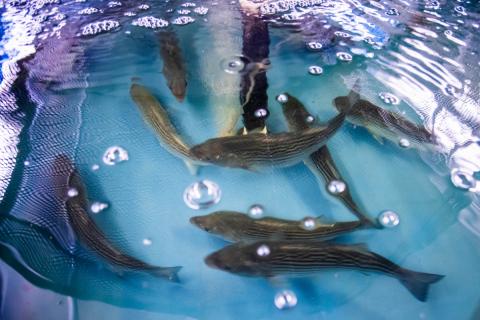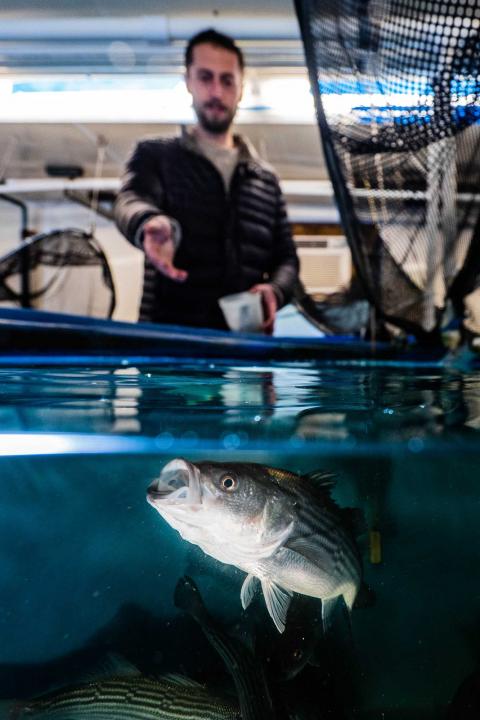
The need to increase domestic seafood production is essential to our nation’s food security, and NOAA’s five-year marine aquaculture strategic plan mandates expanding sustainable U.S. marine aquaculture production by at least 50 percent by 2020. One of the impediments that has hindered the expansion of finfish aquaculture has been the limited number of appropriate species choices. Candidate aquaculture species must command a premium price, have high consumer demand and adapt to localized environments for profitable production. One species that meets all these criteria is the striped bass (Morone saxatilis), and its commercial production has been initiated on a limited scale. For marine culture, it is also imperative to culture fish indigenous to, or representative of, those inhabiting waters of the culture site. This is important because indigenous fish likely have adapted for optimal growth and other important rearing traits. It is also important to use endemic strains because any potential escapement would be less injurious to the local genetic population structure of wild fish. Improved knowledge of genetic stock structure would benefit fishery management in addition to aquaculture, as striped bass is one of the most popular recreational sport species in the northeastern U.S.
In this study, researchers will work with collaborating fishermen and aquaculturists to develop environmentally responsible marine striped bass culture by increasing our understanding of the genetic stocks that should be used as broodstock. The researchers will also use state-of-the-art genomic tools to identify the stock structure of migrating striped bass in the northern Atlantic coastal region to better inform management decisions. Finally, they will culture striped bass in recirculating systems and near-shore netpens, to demonstrate the feasibility of marine culture. The results of this study will be made available to current and future culturists and fishery managers through a robust outreach component.
Principle Investigator

David Berlinsky, Ph.D.
Professor, Biological Sciences; University of New Hampshire
Contact Dr. Berlinsky
david.berlinsky@unh.edu
Project Funding Cycle
2018-2019 NH Sea Grant Biennial Research Funding
Co-Investigators
Adrienne Kovach, PH.D.
Associate Professor, Natural Resources and the Environment, University of New Hampshire
Contact Dr. Kovach
adirenne.kovach@unh.edu
Project News

